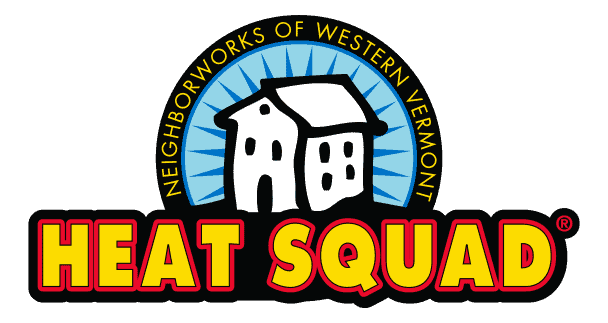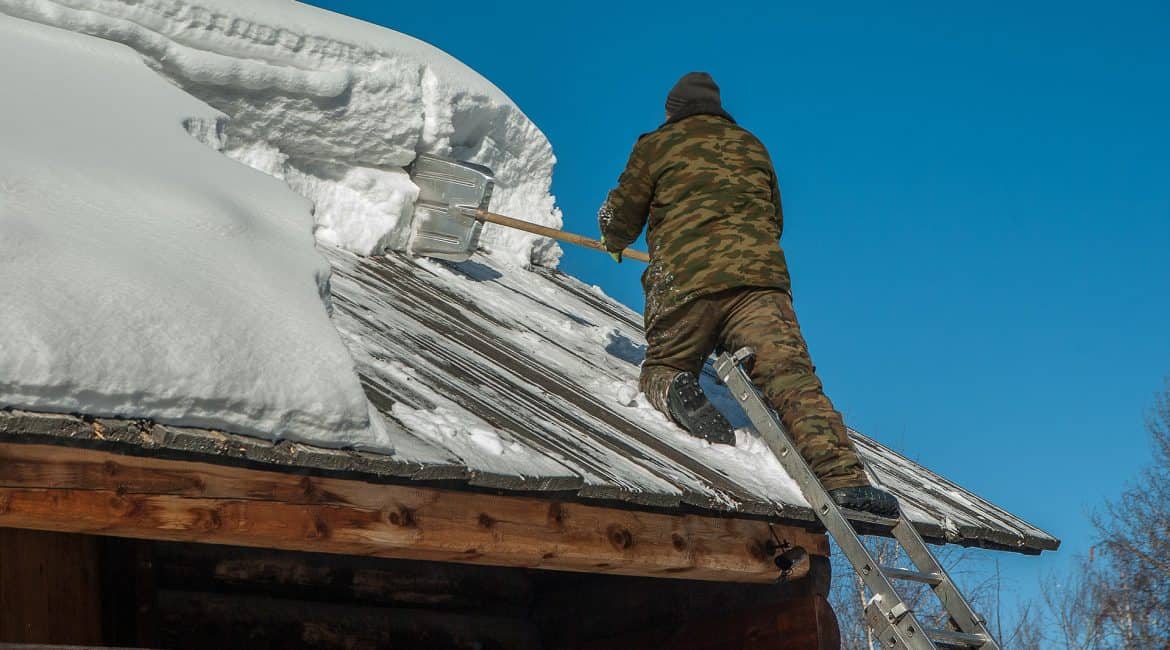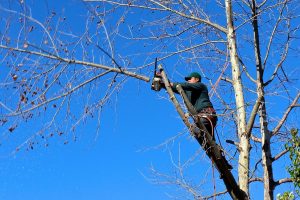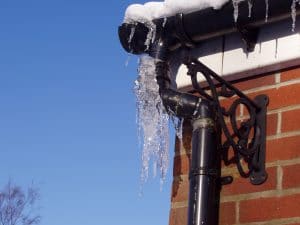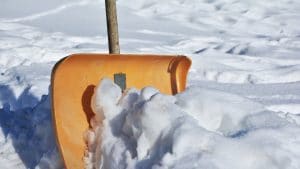Although falling snow can be a pretty sight, it can also bring on some pretty hefty damage to your home’s exterior and even interior. Moisture from snow can build up and cause ice dams, ice around the home, basement flooding, and even foundation damage. Heavy snow can lead to roof damage, and take a toll on a home. If you aren’t prepared, snow and ice can also mean power outages or cold homes. We hope some of the following projects help keep you and your home safer this winter.
Prepare your home in advance:
Stock up on what you need, for example, food, water, batteries, and snow removal tools (shovel, salt, etc.). If you have a snowblower, make sure it is in good, working condition and that you have enough fuel on hand. Inspect your shovels and make sure they are in good condition. Have a ready supply of ice melt or sand right where you will need it most, like by your door or near the tricky part of the driveway. Don’t wait until you run out of fuel to order your supply for the winter, be that either wood, pellets, oil or other forms of heat supply.
Get rid of potential electrical issues:
Damage to electrical wires can pose a major fire hazard. Prevent these by inspecting the outside of your home, mostly for damaged or fraying wires. Bird nests should carefully be removed, if you can, from any electrical wires/fixtures because they can cause fires. Inside the home, you are going to want any electric decorations to have tight-fitting connections, like 3-prog outlets.
Trim your trees:
Ice can accumulate on tree branches which can cause them to snap and fall damaging your home, car, and even people. Before the snow starts falling, hire someone to come trim some of the bigger branches of the trees back (or those hanging over your roof or where you park your car) to avoid them causing damage.
Watch out for water issues on your roof:
There are three main things that cause winter water damage to your home:
- Excess snowfall: Large amounts of snow can become heavy and put a lot of pressure on your roof. If you have a high-pitched or slanted roof you have a greater advantage compared to homes with low-pitched or flat roofs. Signs that the snow is too heavy are sagging, ceiling leaks, cracks in interior walls, and popping or creaking noises coming from the roof. Removing snow yourself is dangerous but there are services that have people trained to do it. Hire someone who is professionally trained to help you or invest in a snow/roof rake that you can use from the ground. The sooner the snow is cleared; the less damage you will have on your roof.
- Icy gutters: Gutters should be cleaned before the first snowfall to prevent ice buildup. Clogged gutters can cause ice buildup – a sign of this could be those large icicles hanging from your gutters or a lot of ice on your roof that doesn’t seem to be melting.
- Icicles: Falling icicles are also very dangerous, especially larger ones that are more apt to fall. Heavy ones that fall from one roof to another can damage the roof. If they can be reached from a window or the ground, consider removing them before they cause damage.
Prepare your pipes:
Prevent future water issues by prepping your pipes for the cold. Insulate the water pipes that are exposed to the cold. These are mainly pipes that run along an exterior wall. Consider using pipe insulation that comes in tubes. Neglecting the pipes can cause them to burst and when that happens, it can cost thousands. If you have issues with your pipes this winter:
- Don’t wait for frozen pipes to burst, if you suspect that’s what coming, thaw them out if you can with a hairdryer or call a plumber immediately
- If they do burst, turn off the water completely and call a plumber
- Dry and repair any water damage to prevent mold
- Call your insurance company
Keep walkways clear:
Keeping walkways cleared helps prevent family members and yourself from getting injured. Using salts, sand, or any other commercial solution to get rid of ice can help keep sidewalks, driveways, and other pathways clear and safe to use.
So much winter house damage can be prevented if the proper steps are taken. Not sure where to start? Call the HEAT Squad and have them do a whole home evaluation that looks at more than just your energy usage. The HEAT Squad team can point out potential health and safety risks, help you locate air leaks, identify winter ice issues, and so much more. Visit www.heatsquad.org or call 802-438-2303 for more information.
Author: Bailey Aines, part-time NWWVT employee
